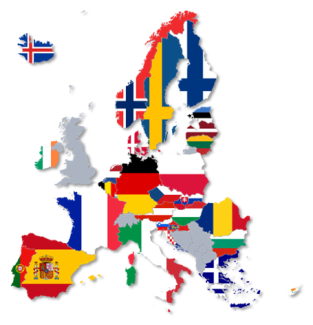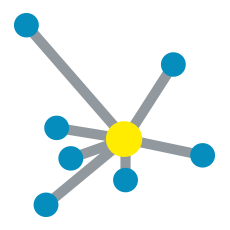The ELRC European tour 2015-2022
86 workshops in 29 countries, more than 5.000 participants in numerous sessions, panels and discussions about language data, public open data, multilingualism, language technology and AI. A unique context that facilitated interactions of a diverse group of stakeholders: public administration representatives, policy makers, the European LT industry and research, and LSPs.
The ELRC country workshops were conducted in three rounds spanning from 2015 to 2022 and offered a platform for raising awareness about the CEF AT services offering, as well as for promoting the goal of a truly multilingual Digital Single Market. At the end of this journey, we are proud to have contributed to pass through many ELRC messages:
- Speakers of less-spoken languages are facing a digital time bomb. We can’t expect our language(s) to follow the pace of global technological development unless we support this development at the national and European level.
- Share your language data with Europe! Contribute to improving the quality of technological support for your language.
- Supporting your language(s) is supporting Europe, supporting Europe is supporting your language, your citizens, and businesses! It is a win-win situation.
- … and most importantly, the ELRC motto: #LanguageDataMatters
 Throughout the evolution of the ELRC country workshops, we have witnessed the gradual shift of mindsets towards recognising the value of language data. We have identified concrete national initiatives concerning appropriate language management and sharing, which now include the development of guidelines, regulations, and infrastructures. We were delighted to see the number of language resources hosted in the ELRC-SHARE repository grow, not only as a result of the ELRC data collection activities, but because of the numerous contributions from public services all over Europe and, of course, from the CEF eTranslation generic services projects. We have recorded recurring requests from the public administrations for language technologies beyond machine translation, such as anonymisation, speech recognition, chatbots, simplification, opinion mining, etc. We have collected the concerns of data holders about the “lawfulness” of sharing language data, while respecting copyright, privacy issues and GDPR.
Throughout the evolution of the ELRC country workshops, we have witnessed the gradual shift of mindsets towards recognising the value of language data. We have identified concrete national initiatives concerning appropriate language management and sharing, which now include the development of guidelines, regulations, and infrastructures. We were delighted to see the number of language resources hosted in the ELRC-SHARE repository grow, not only as a result of the ELRC data collection activities, but because of the numerous contributions from public services all over Europe and, of course, from the CEF eTranslation generic services projects. We have recorded recurring requests from the public administrations for language technologies beyond machine translation, such as anonymisation, speech recognition, chatbots, simplification, opinion mining, etc. We have collected the concerns of data holders about the “lawfulness” of sharing language data, while respecting copyright, privacy issues and GDPR.
All our findings and results of the ELRC workshops per country are available in the ELRC website, while most of the lessons learnt have been fed into the updated ELRC country profiles of the ELRC White Paper.
This tour around Europe in the last seven years would not have been possible without the ELRC National Anchor Points, who acted as local organisers of the workshops even during the Covid-19 pandemic, embraced the ELRC messages, mobilised the local stakeholders and evangelised the value of language data and the potential of language-centric AI. Our sincere gratitude goes to them!







